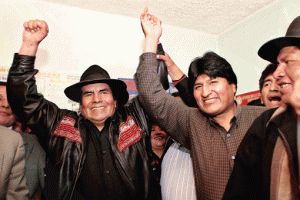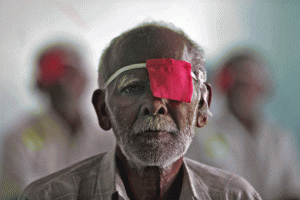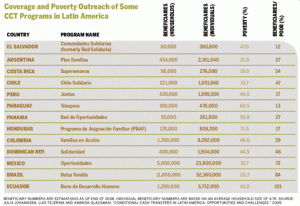
Marketing Documentaries
Educational TV can be a powerful tool for raising awareness of social issues. The problem: production costs place it beyond reach for most activists and educators in Latin America. Enter Fundación Albatros Media, a Panama-based nonprofit that produces and distributes documentaries on quality of life and environmental and social issues free of charge to television … Read more
Arts Innovator: Cavi Borges, Brazil
The life of Rio de Janeiro’s favelas is Cavi Borges’ passion and the subject of his cinematic art. But in a departure from classic films about Rio’s notorious slums such as Cidade de Deus (2002) or Tropa de Elite (2007), Borges portrays the human, personal experiences of growing up in the favelas. Focusing on the … Read more
Civic Innovator: ViaEducation, Mexico
To address educational gaps among marginalized populations in the Americas, a group of Latin American students attending Harvard University’s Graduate School of Education and the Massachusetts Institute of Technology launched in 2004 an education assistance network. Drawing from the knowledge and expertise in the United States, their goal was to expand access to secondary and … Read more
Political Innovator: Yolande James, Canada
Yolande James has been Québec’s Minister of Immigration and Cultural Communities for three years. In the often-turbulent politics of Canada’s French-speaking province, few immigration ministers last that long. But James, 32, stands out for more than her survival skills: as the youngest woman, and first black woman, to serve in a high-ranking cabinet post in … Read more
Business Innovator: Lumni, Inc., Chile and Colombia
Would you invest in the education of a college student if you were able to earn a tidy return from his or her success? Felipe Vergara and Miguel Palacios are betting that a lot of people would. Since 2006, the investment model created by their Miami-based company, Lumni, Inc., has financed the college educations of … Read more

Dispatches: Labor Conditions in New Orleans
Under the thick humid blanket of a New Orleans summer day, local and migrant workers collect at gas stations on the avenues of Carrollton and Elysian Fields. Some hold hard hats and eagerly look out onto the road. Some chat with one another—a more enjoyable way to pass the time while they wait, wait and … Read more
Dollarization: Ecuador’s Monetary Management
Ecuador’s 10-year experiment with dollarization is at a crossroads. Unless public spending can be reined in and the government can come up with a sound budget, the experiment could collapse in the medium term. That would be a severe setback. A January 2009 survey by the Market polling firm suggests that 80 percent of Ecuadorans … Read more
Trade and Productivity: Unclogging Transport
During the past two decades, most countries in Latin America and the Caribbean made considerable progress in opening up their economies, particularly as a result of slashing tariffs and non-tariff barriers either unilaterally or through trade agreements. While this has led to more productive firms and economies, much work remains if the region wants to … Read more

Power to the Parents
In a massive decentralization experiment in the 1990s, governments in Central America established thousands of rural community-managed schools (CMS) in which communities elected parent councils to hire, fire and monitor primary school teachers as well as purchase school materials. Reforms implemented by the governments of El Salvador, Honduras and Guatemala not only promised increased accountability … Read more

Bolivia’s Radical Decentralization
Bolivia under President Evo Morales is undergoing revolutionary change. Since it assumed power in 2006, much of the international attention on the Morales government has focused on its socioeconomic policies. But those policies may ultimately leave less of a political imprint than the transformation of the country’s governing structures. In fact, the most profoundly radical … Read more

The Arctic: The New El Dorado
Just 50 years ago, the Arctic was one of the world’s most remote and inhospitable regions, largely populated by indigenous peoples who hunted musk-ox and caribou and supported themselves with fishing, much as their ancestors had done for thousands of years. But climate change has transformed this timeless landscape of snow and ice into the … Read more

Filling the Gap
The World Health Organization (WHO) Constitution defines health as a human right and declares that governments “have a responsibility for the health of their peoples which can be fulfilled only by the provision of adequate health and social measures.”1 But the gap between rhetoric and reality is large, particularly in developing nations where scarce resources, … Read more

Finally Reaching the Poor
Conditional cash transfer (CCT) programs are now widespread in Latin America. Fifteen countries run CCT programs, benefiting approximately 100 million people and 21 million households. These programs address market failures associated with low investment in human capital for the poor. Although their structure differs by country, CCTs generally transfer cash to poor mothers once they … Read more
Lessons from the Mexican Reform
Science will play a critical role in the expansion and improvement of global health. We must be able to apply what we learn about technology, drugs, communicable and noncommunicable diseases, personal hygiene, feeding habits, sexuality, and child rearing to policymaking on health care. Similarly, social science evaluations of the impact of health care policies and … Read more
Ask the Experts: Trafficking and Transnational Crime
Sérgio Cabral Answers: Over the last decades, the State of Rio de Janeiro has experienced a significant downturn in public security. Lack of investment, under-trained law enforcement personnel and constant struggles between the federal and state government contributed to the escalation of violence and crime rates. But since the beginning of 2007, we have been … Read more


